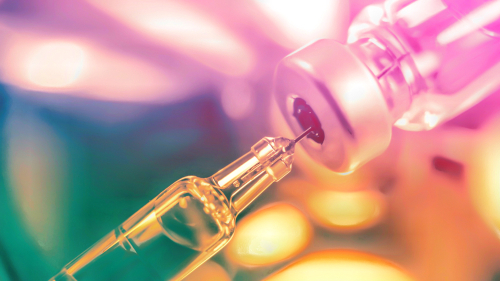The Health Department today announced it has issued Commissioner’s Orders to all yeshivas in Williamsburg affected by the school exclusion mandate. This means that any school out of compliance will immediately be issued a violation.
In December, the Health Department ordered yeshivas and childcare centers serving the Orthodox Jewish community in the affected ZIP codes in Brooklyn to exclude all unvaccinated students from attending school or daycare until the outbreak is declared over.
In January, one yeshiva in Williamsburg fell out of compliance with the Department’s exclusion mandate, allowing unvaccinated children back into school or daycare. This single yeshiva is connected to more than 40 cases, resulting in a large increase in measles cases and the continuation of the outbreak.
The Health Department has since issued Commissioner’s Orders to all yeshivas in Williamsburg to comply with the mandatory exclusion of unvaccinated children or face violations subject to fines and possible school closure.
The measles outbreak in the Orthodox Jewish community continues to increase at an alarming rate. To date, 285 cases have been confirmed since the beginning of the outbreak in October, with many of these new cases being confirmed in the last 2 months. The vast majority of cases are children under 18 years of age (246 cases), and 39 cases are adults. Most of these measles cases were unvaccinated or incompletely vaccinated individuals. There have been no deaths associated with this outbreak, although there have been complications, including 21 hospitalizations and five admissions to the intensive care unit.
Ahead of Passover, the Health Department is urging all New Yorkers—especially those in the Orthodox Jewish community—to get the measles-mumps-rubella (MMR) vaccine to prevent further spread of the virus. Individuals traveling to areas with ongoing large outbreaks, including Israel, Europe, Upstate New York, and other parts of the United States should make sure they and their children are appropriately vaccinated with MMR.
“As a pediatrician, I know the MMR vaccine is safe and effective. This outbreak is being fueled by a small group of anti-vaxxers in these neighborhoods. They have been spreading dangerous misinformation based on fake science,” said Health Commissioner Dr. Oxiris Barbot. “We stand with the majority of people in this community who have worked hard to protect their children and those at risk. We’ve seen a large increase in the number of people vaccinated in these neighborhoods, but as Passover approaches, we need to do all we can to ensure more people get the vaccine.”
Most cases have been reported from Williamsburg and Borough Park, Brooklyn. Five cases, including the initial case of measles, were acquired on a visit to Israel, where a large outbreak of the disease is occurring. Two people contracted measles from the U.K. and one from Ukraine.
Measles is a highly contagious disease and can cause pneumonia, encephalitis (swelling of the brain), and death. Measles is easily preventable with the safe and effective MMR vaccine. Newborns, pregnant individuals, and those with weakened immune systems cannot get vaccinated, so it is important that everyone around them be vaccinated in order to protect them from contracting the virus which can have severe complications in these susceptible populations. While the MMR vaccine is the safest and most effective method of prevent measles, it is only 97 percent effective, so population wide immunity is a key component to protecting our most at risk New Yorkers from measles. Pregnant women – even if they have received the MMR vaccine – are still at risk of complications including birth defects or loss of pregnancy.
In February, the Department expanded vaccination recommendations for providers serving the Orthodox Jewish community to include an early, extra dose of the MMR vaccine for children between the ages of 6 months to 11 months who live in Williamsburg and Borough Park.
Measles Background
Measles is transmitted by airborne particles, droplets, and direct contact with the respiratory secretions of an infected person.
Symptoms usually appear 10 to 12 days after exposure to measles, and in some cases, symptoms can start as early as seven days or as late as 21 days following exposure.
Early symptoms include fever, cough, runny nose, and red, watery eyes.
Rash and fever are the typical symptoms of measles and usually occur four days following the early symptoms. The rash usually starts on the face and proceeds down the body. The rash lasts several days.
Infected individuals are contagious from four days before rash onset through the fourth day after rash appearance.
Anyone can contract measles but the virus is more severe in infants, pregnant women, and people whose immune systems are weak. Complications include:
Diarrhea
Ear infections
Pneumonia (swelling of the lungs)
Encephalitis (swelling of the brain)
Premature birth or low birth-weight
Miscarriage
Death
About 1 out of 1, 367 children < 5 years developed a late, fatal complication of measles, subacute sclerosing panencephalitis (SSPE), an average of 9.5 years after recovery from measles infection.
Precautions New Yorkers Should Take
Measles can be prevented through vaccinations. New Yorkers should call 311 to access a list of facilities that can provide MMR at low or no cost.
There are large outbreaks of measles in Europe and Israel, as well as in countries in South America, Africa, and Asia. New Yorkers should make sure they have been vaccinated with MMR vaccine before traveling to Europe or Israel. Infants ages 6 to 11 months should also be vaccinated prior to international travel.
New Yorkers who believe they were exposed to measles or who have symptoms of measles should contact their health care provider before seeking care to prevent exposure to other patients.
For more information, New Yorkers can visit the Health Department’s Measles page.





